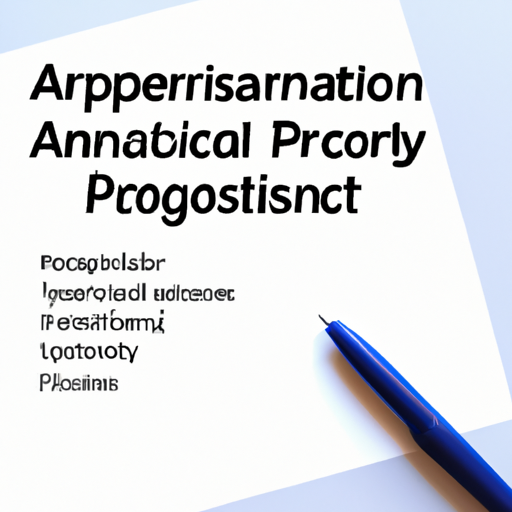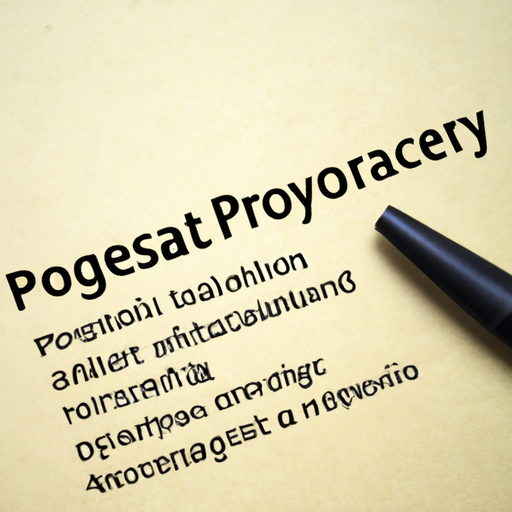Procurement Analyst Job Description: Enabling Optimal Efficiency in the Procurement Process
In today’s increasingly competitive marketplace, organizations are constantly seeking ways to streamline their operations and maximize profitability. With procurement being a critical function in any business, the demand for skilled professionals who can effectively analyze and optimize procurement processes has never been higher. This article aims to provide a comprehensive overview of the procurement analyst job description, highlighting the key responsibilities, qualifications, and skills required to excel in this role. Whether you are a seasoned procurement professional looking to advance your career or a prospective candidate interested in venturing into this dynamic field, understanding the intricacies of the procurement analyst role will be invaluable in pursuing success in the ever-evolving business landscape.
Table of Contents
- Overview of the Procurement Analyst Role
- Key Responsibilities of a Procurement Analyst
- Skills and Qualifications Required for a Procurement Analyst
- Understanding the Procurement Process
- Analyzing and Evaluating Supplier Performance
- Utilizing Data Analysis Tools in Procurement
- Trends and Best Practices in Procurement Analysis
- Improving Cost Efficiency and Savings in Procurement
- Recommendations for Advancing a Career as a Procurement Analyst
- In Retrospect

Overview of the Procurement Analyst Role
The procurement analyst role is a vital position within any organization’s supply chain management team. As a procurement analyst, you will be responsible for conducting detailed research and analysis to support the procurement process and ensure cost-effective purchasing decisions. Through your comprehensive data analysis, you will identify trends, evaluate supplier performance, and optimize the procurement strategy to maximize financial savings.
As a procurement analyst, your day-to-day tasks will involve gathering and interpreting data from various sources, including market research reports, financial statements, and supplier databases. You will then utilize your strong analytical skills to identify cost-saving opportunities, negotiate with vendors to secure favorable terms, and monitor contracts to ensure compliance. Furthermore, you will play a key role in forecasting demand, maintaining accurate inventory levels, and collaborating with stakeholders across departments to optimize procurement operations.
- Conduct comprehensive research and data analysis to support procurement decision-making.
- Identify cost-saving opportunities and negotiate favorable terms with vendors.
- Monitor supplier performance and ensure compliance with contractual agreements.
- Forecast demand and maintain optimal inventory levels.
- Collaborate with cross-functional teams to streamline procurement operations.
As a procurement analyst, your attention to detail, strong analytical skills, and ability to work under pressure will be crucial for success in this role. Fluency in data analysis, proficiency in procurement software, and excellent communication skills are highly desired. Join our team and take on the exciting challenge of playing a pivotal role in driving efficiency and achieving cost savings through strategic procurement analysis!

Key Responsibilities of a Procurement Analyst
In this post, we will delve into the , shedding light on the crucial tasks and duties that come with this role. As a procurement analyst, your primary responsibility is to analyze and assess procurement data to optimize the efficiency and cost-effectiveness of the company’s supply chain.
Firstly, you will be responsible for conducting market research to identify potential suppliers and evaluate their capabilities, ensuring they meet the company’s quality standards. This entails monitoring market trends, analyzing supplier performance, and negotiating contracts to secure the best terms and prices for goods and services. Additionally, you will engage in data-driven procurement analysis, leveraging advanced analytic tools to identify cost-saving opportunities, streamline processes, and minimize risks in the supply chain. By analyzing historical data and market forecasts, you will develop procurement strategies that optimize inventory management, reduce procurement costs, and enhance overall operational efficiency. Your ability to identify key performance indicators and track them will be vital in facilitating continuous improvement within the procurement function.

Skills and Qualifications Required for a Procurement Analyst
A procurement analyst plays a crucial role in ensuring efficient and cost-effective procurement processes within an organization. To excel in this role, candidates must possess a diverse set of skills and qualifications. Here are some of the key requirements for a procurement analyst:
- Analytical Skills: The ability to analyze complex data sets and extract meaningful insights is essential for a procurement analyst. Strong quantitative and qualitative analysis skills are necessary to identify trends, evaluate supplier performance, and optimize procurement strategies.
- Attention to Detail: In procurement, even the smallest oversight can have significant financial implications. Therefore, a procurement analyst must have a keen eye for detail to ensure accuracy in documentation, contracts, pricing, and other procurement-related processes.
- Communication Skills: Effective communication is vital for a procurement analyst to collaborate with suppliers, stakeholders, and internal teams. Strong verbal and written communication skills allow them to negotiate contracts, resolve disputes, and convey complex information in a clear and concise manner.
- Knowledge of Procurement Processes: A deep understanding of procurement principles, practices, and industry trends is critical for success in this role. Familiarity with sourcing methods, contract management, supplier evaluation, and market analysis enables a procurement analyst to make informed decisions and drive efficiency.
Alongside these core skills, a bachelor’s degree in business administration, supply chain management, or a related field is typically required. Professional certifications such as Certified Professional in Supply Management (CPSM) or Certified Professional in Supplier Diversity (CPSD) are also advantageous. Prior experience in procurement, data analysis, or vendor management is highly valued, as it demonstrates practical knowledge and the ability to navigate the complexities of procurement operations.
Understanding the Procurement Process
Procurement Analyst Job Description
To effectively carry out the role of a procurement analyst, it is essential to have a comprehensive understanding of the procurement process. This intricate process involves various steps that ensure the acquisition of goods and services aligns with an organization’s strategic goals and objectives. Understanding and adeptly navigating this process allows procurement analysts to optimize procurement activities, minimize costs, and maximize value for their organization.
A crucial aspect of the procurement process is conducting market research and analysis. As a procurement analyst, you will be responsible for gathering and evaluating data to identify potential suppliers, assess their capabilities, and determine their suitability for meeting the organization’s requirements. By analyzing market trends, identifying cost-effective suppliers, and understanding market dynamics, you will contribute to the development of effective procurement strategies.
Analyzing and Evaluating Supplier Performance
In order to effectively fulfill the responsibilities of a procurement analyst, one essential task is analyzing and evaluating the performance of suppliers. This crucial aspect of the role involves assessing the effectiveness and efficiency of suppliers in meeting business requirements. By scrutinizing supplier performance, procurement analysts can identify areas for improvement and implement strategies to enhance the overall supply chain process.
In the realm of supplier performance analysis and evaluation, procurement analysts engage in various activities. These include:
- Data Collection: Procurement analysts gather and analyze data related to supplier performance, such as delivery times, quality control measures, and overall responsiveness to business needs.
- Performance Metrics: They define key performance indicators (KPIs) and establish benchmarks for measuring supplier performance. These metrics help in objectively evaluating supplier effectiveness against predetermined standards.
- Performance Reviews: Procurement analysts conduct regular performance reviews with suppliers to provide feedback, address concerns, and establish improvement plans, fostering a collaborative relationship.
- Supplier Scorecards: They develop and maintain scorecards to track supplier performance over time. These scorecards serve as a valuable tool for monitoring and comparing supplier performance across various parameters.
Utilizing Data Analysis Tools in Procurement
As a procurement analyst, one of the key responsibilities is to effectively utilize data analysis tools in the procurement process. These tools play a crucial role in streamlining and optimizing various aspects of procurement, ultimately leading to improved efficiency and cost savings for the organization.
One of the primary ways to utilize data analysis tools in procurement is to analyze historical spending patterns and trends. By examining past data, procurement analysts can identify areas of potential cost reduction and negotiate more favorable contracts with suppliers. Additionally, these tools enable analysts to monitor supplier performance by tracking key metrics such as on-time delivery, quality, and compliance. This data-driven approach empowers procurement professionals to make informed decisions, identify strategic sourcing opportunities, and mitigate risks.
- Identify cost reduction opportunities through data-driven analysis
- Monitor supplier performance metrics for improved accountability
- Analyze spending patterns to optimize procurement strategies
- Utilize data analysis to identify strategic sourcing opportunities
- Ensure compliance and mitigate risks through data-driven decision-making
In summary, the utilization of data analysis tools in procurement is imperative to drive efficiency, achieve cost savings, and enhance the overall effectiveness of the procurement process. By leveraging these tools, procurement analysts can harness the power of data to make informed decisions, optimize sourcing strategies, and improve supplier performance.
Trends and Best Practices in Procurement Analysis
When it comes to the field of procurement analysis, staying ahead of the latest trends and best practices is crucial for success. As the demand for efficient and cost-effective procurement processes continues to grow, professionals in this field must continually adapt to meet new challenges and leverage innovative strategies. Here are a few key trends and best practices that every procurement analyst should be aware of:
1. Advanced Data Analytics
Procurement analysts are increasingly relying on advanced data analytics to gain actionable insights into their organization’s procurement activities. By effectively capturing and analyzing large datasets, analysts can identify patterns, forecast demand, and optimize procurement decision-making. Leveraging tools like data mining, predictive modeling, and machine learning can drastically enhance procurement performance and drive cost savings.
2. Supplier Relationship Management
Establishing strong and collaborative relationships with suppliers is no longer just a good practice – it is now a strategic imperative. As procurement becomes more complex and globalized, managing supplier relationships becomes essential for mitigating risks, ensuring quality, and fostering innovation. Procurement analysts need to develop effective supplier relationship management strategies, including regular performance evaluations, conducting negotiations, and fostering open communication.
Improving Cost Efficiency and Savings in Procurement
Ensuring cost efficiency and savings in the procurement process is crucial for the success of any organization. As a procurement analyst, your primary responsibility will be to identify areas of potential improvement and implement strategies to optimize cost-effectiveness. This involves analyzing data, conducting market research, and monitoring supplier performance to maximize value for the company.
In this role, your daily tasks will revolve around performing detailed cost analysis and creating reports to identify cost-saving opportunities. Additionally, you will collaborate with different departments to streamline procurement processes, negotiate contracts, and evaluate supplier performance. Your analytical skills will play a key role in identifying trends, risks, and opportunities, allowing you to make informed decisions and recommendations on cost optimization strategies. By employing your expertise in data analysis and your proficiency in procurement best practices, you will contribute significantly to reducing costs, improving operational efficiencies, and ultimately increasing the organization’s bottom line.
Key Responsibilities:
– Conducting comprehensive cost analysis to identify variances and areas for potential cost savings.
– Collaborating with stakeholders to evaluate supplier options and negotiate contracts.
– Implementing cost reduction strategies such as vendor consolidation, price benchmarking, and demand management.
– Continuously monitoring and analyzing supplier performance to ensure compliance and identify improvement opportunities.
– Developing and maintaining procurement-related reports and metrics to track progress and identify areas for improvement.
– Keeping current with market trends, industry regulations, and best practices to inform decision-making processes.
– Providing recommendations on procurement policies, procedures, and systems enhancements to improve efficiency and cost-effectiveness.
Recommendations for Advancing a Career as a Procurement Analyst
As a procurement analyst, there are several recommendations that can help you advance your career and excel in your role. These tips encompass not only the technical aspects of the job but also the soft skills necessary for success in this field.
First and foremost, it is crucial to stay updated on the latest industry trends and best practices. Attend conferences, workshops, and webinars related to procurement and supply chain management. Engage in professional development activities and consider pursuing certifications such as Certified Professional in Supply Management (CPSM) or Certified Professional Public Buyer (CPPB) to enhance your credibility and knowledge in the field.
- Build a strong network: Networking is key in any profession, and procurement is no exception. Connect with professionals in the procurement industry through online platforms like LinkedIn or attend industry events to expand your professional network. Establishing relationships with colleagues, suppliers, and industry experts can open doors for mentorship opportunities and career growth.
- Develop analytical and data management skills: As a procurement analyst, your ability to analyze data and extract meaningful insights is vital. Continuously improve your analytical capabilities by learning and mastering tools like Excel or data visualization software. Develop a deep understanding of data management processes and learn about techniques to enhance data accuracy and integrity.
- Improve communication and negotiation skills: Effective communication and negotiation skills are crucial in procurement. Strengthen your ability to articulate ideas, present data-driven insights, and negotiate favorable terms with suppliers. Consider taking courses or workshops focused on negotiation and persuasive communication to refine these skills.
- Embrace a continuous improvement mindset: Stay proactive and seek opportunities to streamline procurement processes, maximize cost savings, and optimize efficiencies. Keep up with emerging technologies like artificial intelligence and automation that can revolutionize procurement operations.
In Retrospect
In conclusion, the role of a procurement analyst plays a crucial part in optimizing the procurement process within an organization. Their expertise in analyzing market trends, managing budgets, and enhancing supplier performance enables businesses to make informed decisions that yield cost-effective outcomes. As demonstrated, a procurement analyst’s responsibilities encompass a wide range of strategic and analytical tasks, ensuring the successful execution of procurement strategies. With their attention to detail and ability to identify opportunities for improvement, these professionals elevate the efficiency and effectiveness of procurement operations. Whether in the public or private sector, procurement analysts are indispensable in driving overall organizational success.
